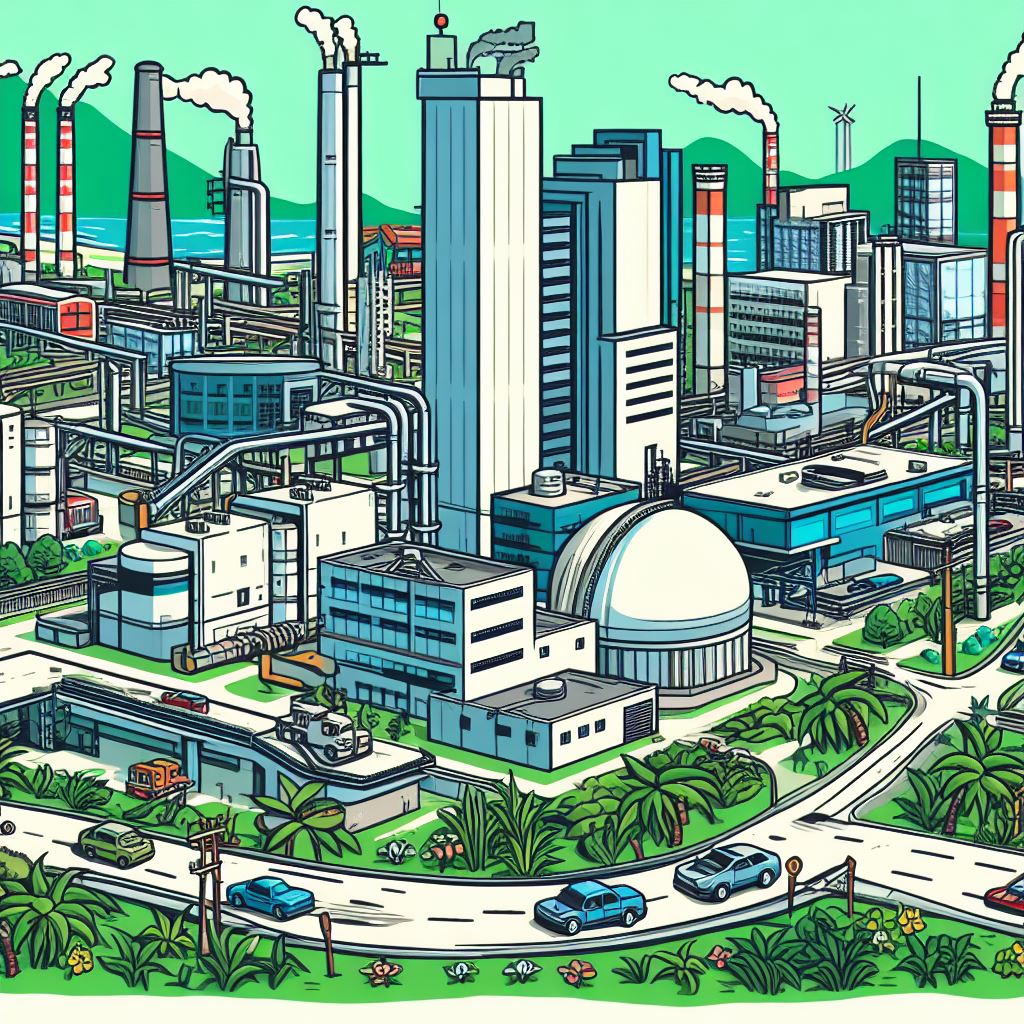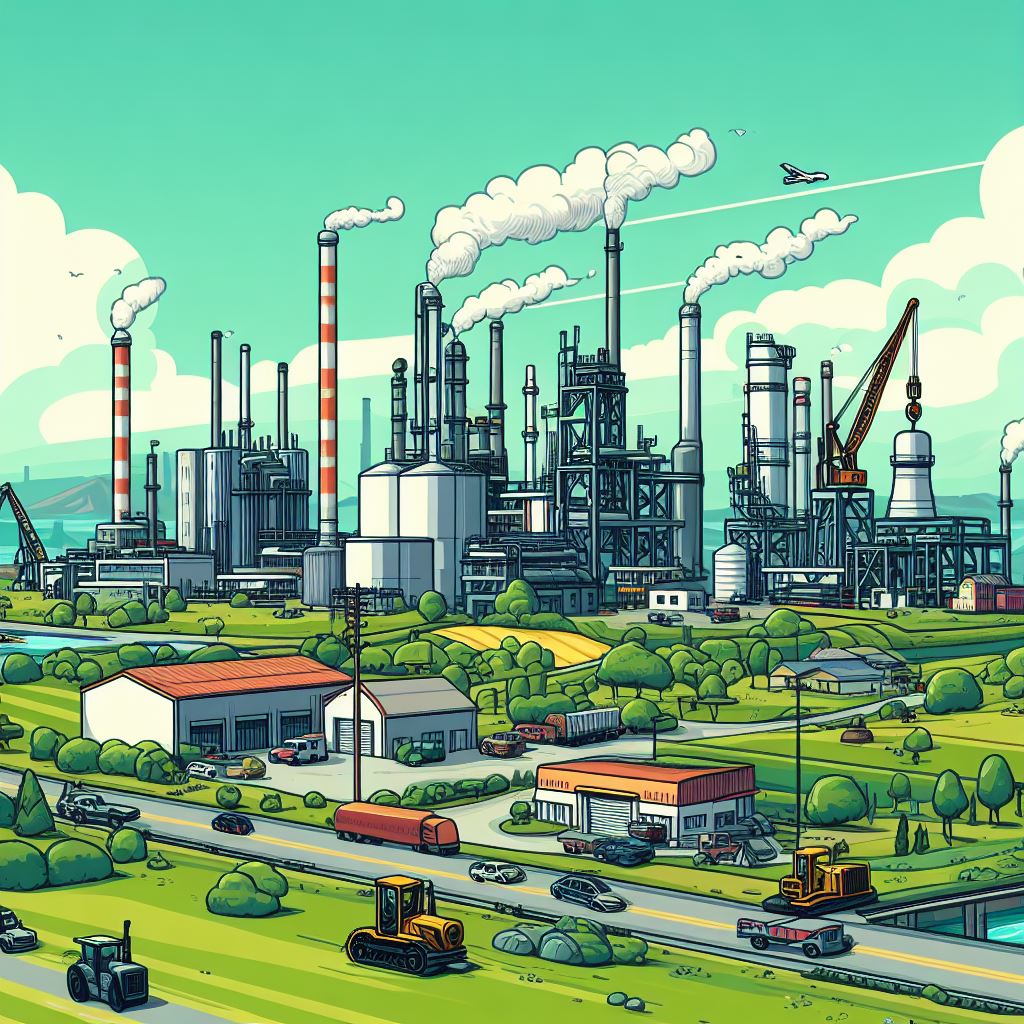Estimated reading time: 4 mins
In the heart of bustling cities where the skyline is punctuated by glistening high-rises and the streets vibrate with the ceaseless activity of urban life, it’s easy to overlook the bedrock upon which the conveniences and luxuries of modern living are built. These are the basic industries – an intricate web of services and manufacturing that quietly ensures the city’s heart keeps beating. This article delves into how these unsung heroes of the industrial sector uphold the foundations of urban life.

The Backbone of the Metropolis: Basic Industries Explained
Basic industries are those which supply their products or raw materials to manufacture other goods and services that facilitate urban living. These include sectors like agriculture, mining, steel production, and utilities. They are considered the backbone of the economy because they provide the essential inputs required for other industries to function and flourish.
Feeding the Urban Populace: Agriculture and Food Production
While cities are often seen as concrete jungles, devoid of cultivation, they rely heavily on the agricultural industry. This sector operates tirelessly to produce and supply food to urban markets. From the grains that are the staple of our diet to the fruits and vegetables that fill the supermarket shelves, agriculture supports urban life by ensuring food security and nutrition.
Energizing the City: Power and Utilities
The urban energy demand is colossal. Basic industries such as power generation plants and utility services work round-the-clock to meet this need. Without these industries, the very fabric of city life – from the lights that illuminate our streets to the electricity that powers our homes and offices – would cease to function.
Building the Urban Landscape: Construction and Manufacturing
Construction and manufacturing industries turn raw materials into tangible goods, from the buildings we live and work in, to the furniture and electronics we use every day. Steel produced by the metallurgical industry, for example, is fundamental for constructing the skeletons of skyscrapers. Cement, glass, and lumber are also products of basic industries, essential for building and maintaining the physical structures of the city.
Connecting the Dots: Transportation and Logistics
Transportation and logistics may not produce a tangible product, but they are crucial in connecting all facets of urban life. They ensure the smooth movement of goods and people within the city and beyond. The logistics sector orchestrates a complex dance of importing raw materials for production and exporting finished goods, keeping the economy’s wheels turning.
Waste Management and Recycling: The Cleanup Crew
As much as production and consumption are vital for urban life, so is dealing with the aftermath. Waste management and recycling industries play a pivotal role in maintaining the cleanliness and livability of cities. They manage the gargantuan task of collecting, processing, and disposing of or recycling urban waste, thus preventing environmental degradation.
The Invisible Network: Information and Communication Technology (ICT)
In the digital age, the ICT sector is another basic industry that underpins urban life. It provides the infrastructure and services necessary for the internet and telecommunications, which have become as essential as other utilities like water and electricity. ICT keeps us connected, informed, and engaged in our personal and professional lives.
The Health of the City: Pharmaceuticals and Healthcare
The pharmaceutical industry is a key player in urban health and wellbeing. It supplies medications and medical equipment to hospitals and clinics, ensuring that the healthcare system is equipped to serve the city’s population. From developing vaccines to manufacturing life-saving drugs, this sector is a cornerstone of urban public health.
The Role of Policy and Planning in Supporting Basic Industries


For basic industries to function effectively and support urban life, a conducive policy environment and strategic urban planning are necessary. Governments play a crucial role in this by investing in infrastructure, providing subsidies, and enacting regulations that ensure these industries can thrive. Urban planning must also accommodate the needs of these industries, providing adequate space for operations and considering their impact on the urban environment.
The Challenges and the Future
Despite their critical role, basic industries face numerous challenges. Environmental impact, resource depletion, and the need for sustainable practices are at the forefront of contemporary concerns. Urban planners and industry leaders are now tasked with innovating and adopting cleaner, more sustainable methods of production.
Moreover, as technology advances, there is an increasing push towards automation and digitization. This transition presents both opportunities for increased efficiency and challenges in terms of workforce adaptation and job displacement.
Conclusion
The seamless functioning of a city is not just about the visible facets of urban life like technology, architecture, and culture. It is equally about the basic industries that toil in the background, often unnoticed. These industries are the unsung heroes that underpin every aspect of urban living, from the food we consume to the buildings we inhabit, the energy we use, and the products we rely on daily. Acknowledging their role and addressing the challenges they face is essential for the sustainable development of urban centers. As cities continue to grow and evolve, the symbiosis between urban life and basic industries will remain as vital as ever, making it imperative for us to support and sustain these foundational sectors for the future.
